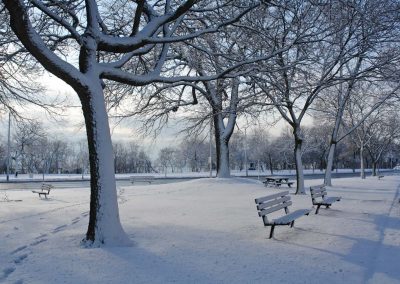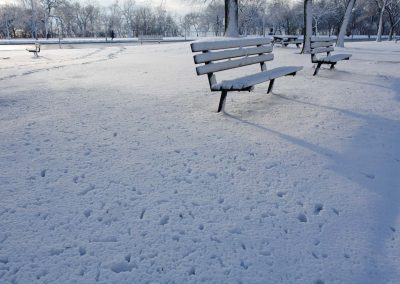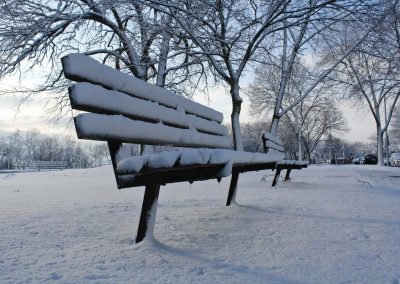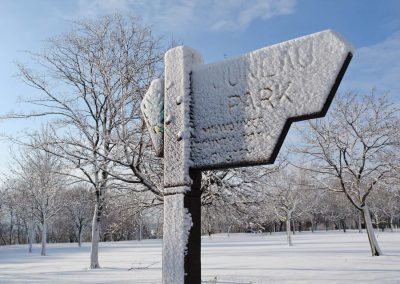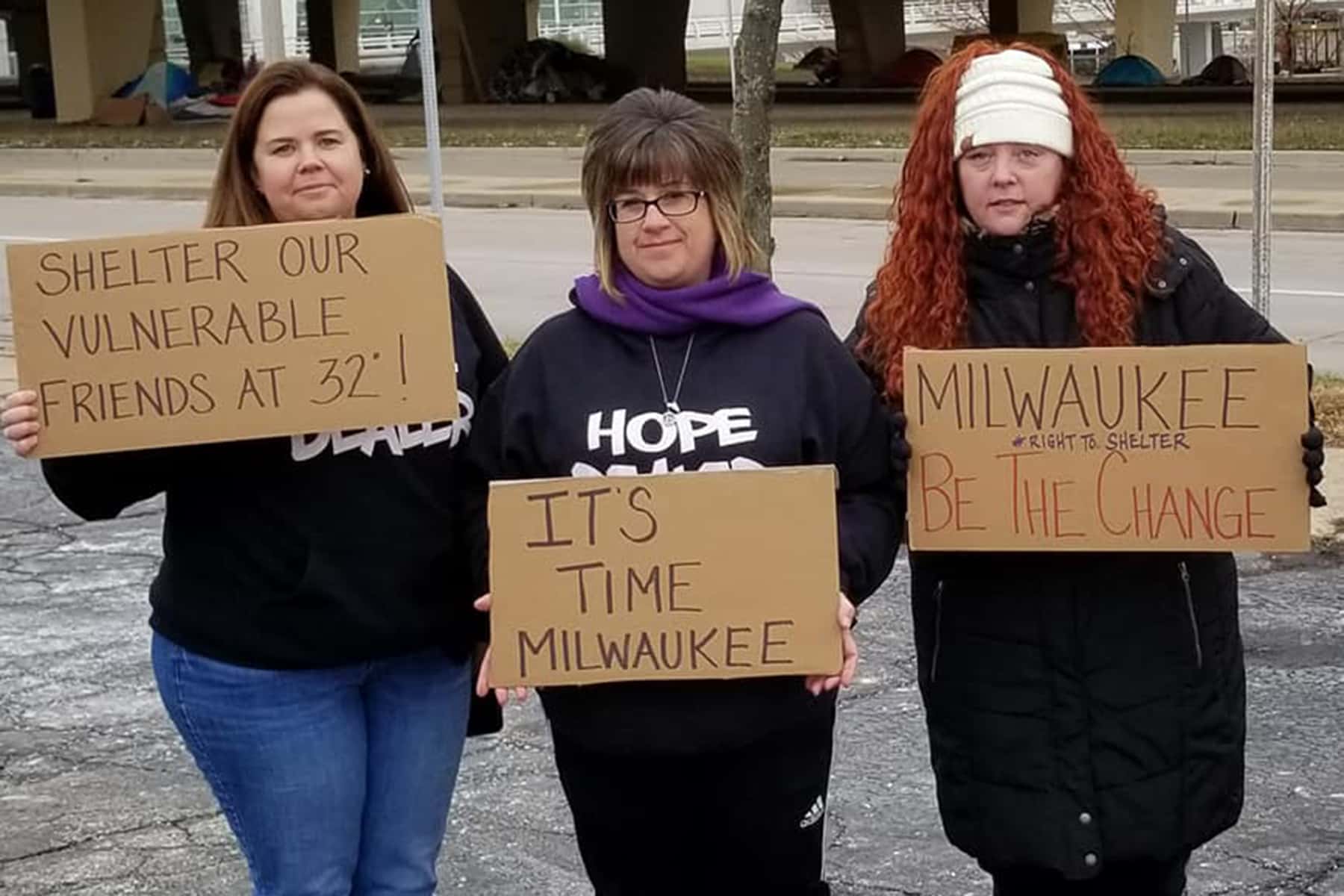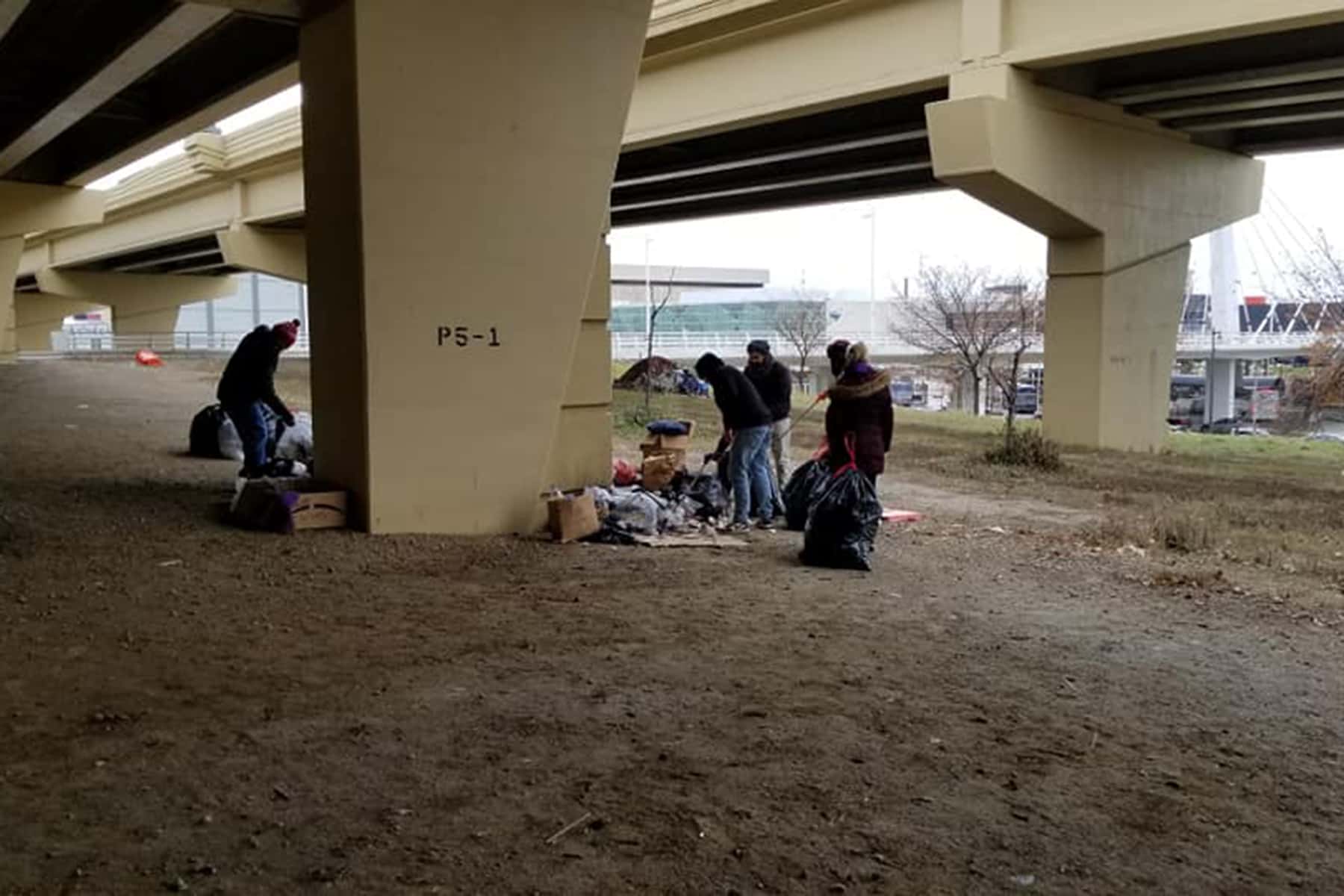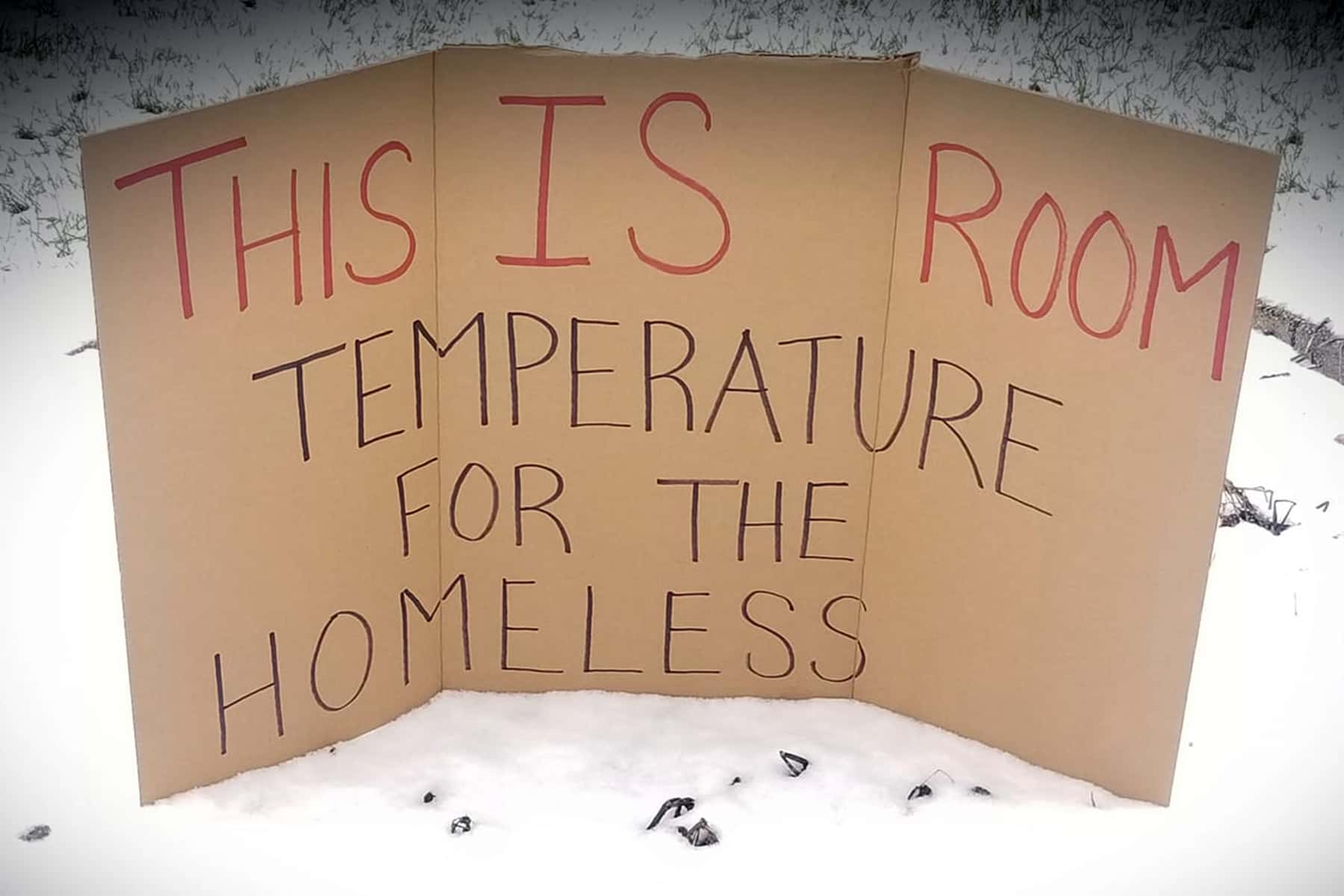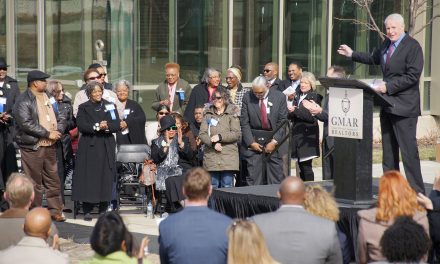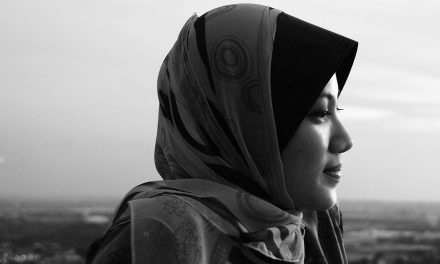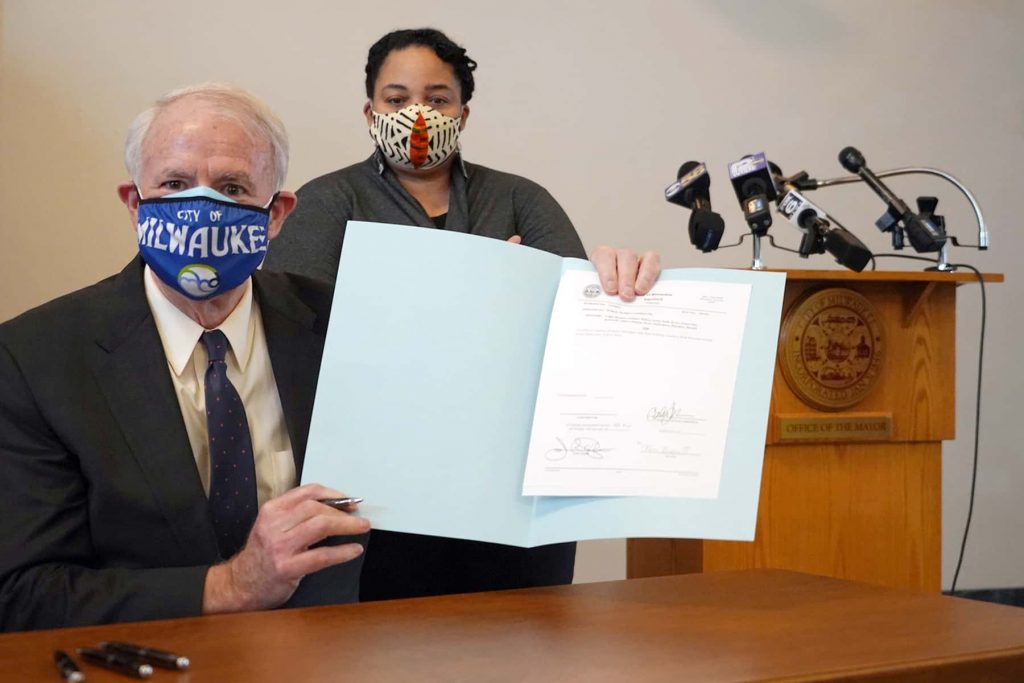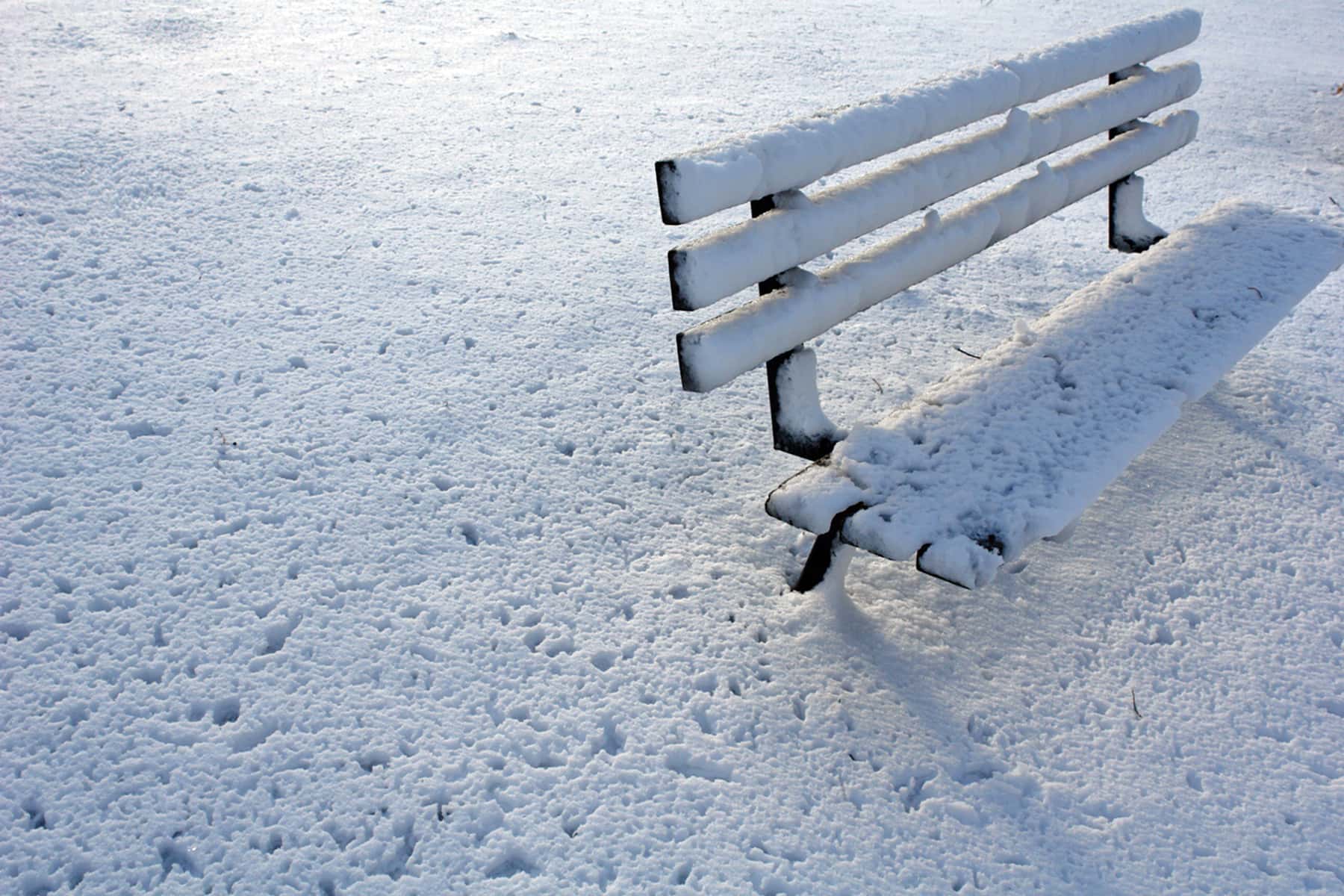
The volunteer-based nonprofit organization, Street Angels Milwaukee Outreach, held a silent protest on November 17 at 6th and Clybourn Streets to demand that homeless people in Milwaukee receive protection from the freezing temperatures this winter.
Air temperatures of 30° to 50° can cause hypothermia, and homeless individuals are exposed to far lower temperatures for extended periods of time over Milwaukee’s long winter months. The city has warming rooms for people living outside, however, they do not open unless the temperature is 10° or lower.
“On any given night, there are about a thousand people homeless in Milwaukee. Some are in shelters but many are not,” said Shelly Sarasin, a co-founder of Street Angels. “When winter does come, we do not have enough shelter space. We need a new approach to protecting people in winter.”
For the past three years, Street Angels has offered homeless outreach services three nights a week. Volunteers bring hot meals, bag lunches, sleeping bags, and other supplies for up to 140 men and women living outside in Milwaukee.
“The warming rooms get a small amount of funding from Milwaukee County and the United Way, but not nearly enough to cover the cost,” said Eva Welch, co-founder of Street Angels. “Frostbite, hypothermia, worsened medical conditions – not to mention just plain suffering – are the consequences of not having adequate warming rooms. No amount of blankets, tents, or winter jackets will keep a person warm and safe when it’s cold, with wind blowing and heavy snow, during a Wisconsin winter.”
According to Jan Wilberg, a policy specialist on poverty issues, other cities have made warming rooms a public responsibility. They have established a much higher temperature as a trigger for service. For example, if the temperature falls below 32° in Washington DC, the city will declare a hypothermia alert. Other municipalities like St. Paul, Minnesota, open emergency winter shelters that operate all winter long.
The Street Angels have advocated that Milwaukee raise the temperature trigger to 32° for warming rooms to open. In addition to increasing public funding for the lifesaving responsibility, the group has called for the utilization of vacant or unused public buildings to provide safe and sanitary temporary housing to people who would otherwise be left outside in the cold.
After the silent protest concluded, members of the Street Angels helped clean up the homeless encampment at 6th and Clybourn Streets.

